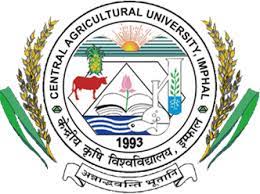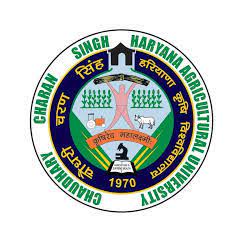A Ph.D. in Agriculture Meteorology is a three-year course that requires the completion of an M.Sc. in Agriculture. Students enrolled in the program must also have a master's degree in agriculture. The program includes coursework, research projects, and a dissertation that is presented to an academic committee. It is possible to obtain a Ph.D. in Agricultural Meteorology through a cooperative M.S./Ph.D. program.
The program is taught in the field of physical sciences and is intended to provide an understanding of the processes and happenings surrounding the atmosphere and its interactions with the earth's surface. Students learn how to analyze data and forecast future weather events based on them. They also develop their critical thinking and teamwork skills, as the field is a collaborative one. Applicants who are looking to enter academia should consider the opportunities offered by the Agril. Meteorology and Physics Ph.D. program.
The Department of Agricultural Meteorology is one of the pioneer departments in the country, having established an academic and research program in 1964 and a Ph.D. program in 1983. In addition to expanding research work, the department also strengthened its infrastructure through ad hoc projects and agrometeorological advisory services. It started integrating remote sensing into agriculture in 1985, under the Gujarat plan scheme.
Eligibility:
Candidates who want to take admission in Ph.D. must have a post-graduate degree in agriculture meteorology with at least 55% marks from a recognized university and must have passed the national level entrance examination or university level entrance examination. National level entrance exams like UGC NET / UGC CSIR NET / GATE / SLET or University entrance exams consist of written tests and personal interviews.
The benefits of a Ph.D. in Agriculture Meteorology
In this field, one of the most important factors for the success of an agricultural operation is the availability of accurate weather forecasts. Therefore, it is necessary to acquire a strong background in basic sciences and mathematics. The objective of the program is to develop advanced techniques for dealing with global issues pertaining to agriculture. Agricultural meteorologists use the knowledge they acquire in fields like agronomy, botany, and statistics. In addition, Ph.D. programs in this field benefit from excellent research facilities and resources. High-performance computational workstations are used for the simulation of field experiments.
In the past, AIAM has organized several training courses for farmers and other agricultural professionals. Its courses have enabled hundreds of participants from across the world to improve their climate services and climate change mitigation efforts. The training facilitated by the program has also been beneficial for students who wish to make a difference in the world's food supply. A Ph.D. in Agriculture Meteorology helps agricultural experts develop more effective management practices.
An agricultural meteorology Ph.D. is a great way to get ahead in the field. You'll have the skills to make a difference in the world. The course is widely recognized, and many employers consider it a valuable investment. Doctorates in Agriculture Meteorology can open doors for employment as an agro-entrepreneur or even in the development of sustainable farming practices.
The career and future scope of Ph.D. in Agriculture Meteorology
In addition to academia, a career in agriculture meteorology is also lucrative. Many agricultural industries rely on agro meteorologists to forecast weather conditions and predict crop yields. The field of agrometeorology is growing in demand worldwide, and field agrometeorology has many different applications. One can work in the environmental sector or in the mining industry.
Agricultural meteorology is a branch of agriculture that deals with the impact of weather on crop and livestock husbandry. Because agriculture is dependent on the five factors of soil, water, and plants, agricultural meteorologists are trained to study these factors. If one of those factors is weak, the other four can make up for it, leading to increased yields. A career in agricultural meteorology can help you gain a better understanding of the five elements of an agricultural system, enabling you to make better management decisions for your farm.
Agricultural meteorology is a highly sought-after specialty. Graduates can work in the public sector, teaching and conducting research, and participating in extension activities. A career in agricultural meteorology can lead to positions in ICAR institutes or other universities. They may even qualify for the Agricultural Research Service (ARS) examination. They can also consult with farmers and scientists on the best practices in crop management.
For example, a career in agricultural meteorology can lead to public sector employment, research, and extension activities. Those with a passion for agriculture can work as agricultural meteorologists in the ICAR institutes. The USDA requires a graduate to be eligible to take the AARS tests, which will allow them to become an Agricultural Research Service (ARS) scientist. These scientists help farmers improve their yields by developing useful farms, climate assessments, growth models, and consulting on disease.
A career in agricultural meteorology can lead to several opportunities. In the public sector, a graduate can work as a consultant for many organizations. There are numerous opportunities for consulting in the field of agriculture meteorology, and the field has grown dramatically in recent years. A graduate in agriculture meteorology can also apply for an Agricultural Research Service test, which will ensure that they receive the best jobs in the area.
With a Ph.D. in agriculture meteorology, you can work in a wide variety of fields. You can also work as a consultant for several organizations. For instance, you might consult for a watershed management program. Your degree will make you an invaluable asset to any of these programs.
Course Duration:
The Ph.D. in Agriculture Meteorology courses are a minimum of 3 years and a maximum of 5 years duration. This depends on the university offering the course.Course Fees:
The average fee for a Ph.D. in Agriculture Meteorology degree is between INR 50000 and INR 500000.
 5 Years
5 Years
 PhD
PhD
 Research
Research















 back
back